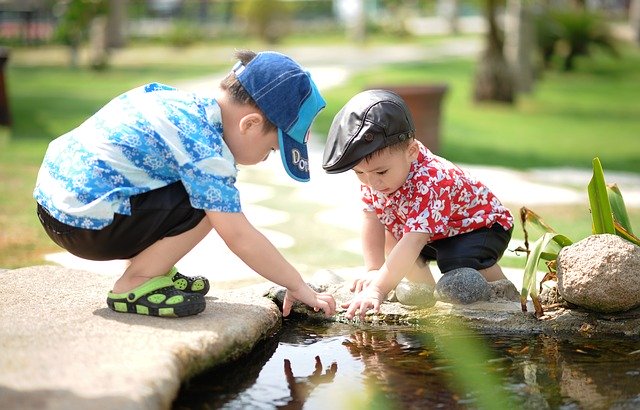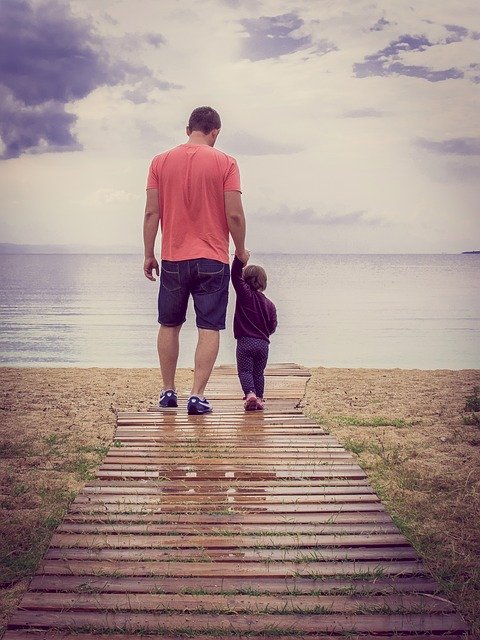
The Best Ideas for Camping with Young Kids
We may earn money or products from the companies mentioned in this post.
With some preparation and the right equipment, the experience of camping with young children can be an enjoyable one for all. Camping with young kids can be a lot of fun for all family members, with a little preparation.

Camping with Young Kids
Young children are naturally curious and will bring a sense of wonder to the camping experience. From the dirt, sand, and puddles on the ground, to the birds and clouds in the sky, young children are often amazed at the surroundings which adults have begun to take for granted.
Preparing Young Children for a Camping Experience
Taking steps in preparing children for camping before actually setting out can help families anticipate challenges that might come upon a trip before they become a real issue.
Activities that might help prepare a child for camping include:
Tent Practice:
Getting a child used to sleeping in a tent before setting out can help calm both the child’s and the parent’s anxiety. Where possible, tents can be set up in the backyard, in a living room, or on a balcony, along with all bedding and equipment that will be used during the trip.
Safety Training:
Children are often unpredictable and will need full supervision, however, training them to stay away from fires and close to known adults may help make the trip more enjoyable.
Bringing along a playpen or portable fence, such as a play yard for occasional use during the trip may also help when adults become tired of chasing children or are in particular fear for their safety as in around water or fires.

Reduce Toys:
Often children have a wide range of toy and activity choices throughout each day. It is rarely possible to bring all of a child’s equipment with them on a camping trip. Likely toys will be limited to about the amount that can fit in a rubber bin, which must entertain the child for the duration of the camping trip.
Try separating the child’s toys into rubber bins. Each bin might contain a few toys, books, and art supplies. Allow the child access to only one bin at a time, which is available for about the length of time the camping trip will be planned for. This will let parents know which varieties of toys work for each child. This is probably the best tip for Camping with Young Kids.
Create Rules
As a child, we went on several campouts, and they were a lot of fun. However, my parents had a list of rules that we had to follow so that other campers could also have fun. As parents, we did the same thing. Here are a few things to remember — and teach.
Check the Site
Not all campers are polite, and it’s a good idea to check the site for anything left behind that could pose a danger. Some things might tear a hole in your tent, but others could directly harm you or your children.
Fire Safety
Check with the park ranger before setting a campfire. There are times and places where this is neither advisable nor legal. When you are able to set a campfire, make sure it is in a fire ring or that you have a good set of stones surrounding it. This will help mark the area off and hopefully prevent the fire from spreading.
Feeding Animals
Yes, the little squirrels and chipmunks are adorable. No, you should not feed them. Feeding wild animals can hurt both them and you. They will become more dependent on humans and could suffer when the season is over. They can also get annoyed with those who don’t feed them and attack.
This is even more important if you are camping in an area inhabited by bears. A bear can do a lot of damage, and it can be deadly. When in this sort of area, don’t have anything remotely food-related where a bear can get at it, and that includes your tent. They’ve been known to smell toothpaste and invade a tent to get at it.
“I Gotta Go” Rules
Most of the time, both as a child and as an adult, we camped in areas that had public restrooms. That is great, but what if you’re out in the wilderness? You can’t hold it forever.
Teach your children how to dig a “potty hole,” use it, and then cover it up. For wiping, you can get biodegradable toilet paper. Some use leaves, but if you grab the wrong one, you will regret it.
Take only Pictures
And leave only footprints. National and state parks have rules, and most of the time, they state that you should not take anything with you, including flowers or rocks.
We actually saw someone climbing a hillside to get a beautiful branch of yucca flowers. I doubt she got to enjoy them long because right around the corner, a park ranger vehicle was heading in her direction. It was a steep climb, so I’d bet she got caught red (or yucca?) handed.
Leave it Better
Leave every campsite better than you found it. You’ve probably already done a lot of that when you checked the site before setting up your tent. As you’re loading up the gear, take a little time to see if you can make it better. Add another rock or two to the fire ring, pick up any debris you see, etc.
These are fairly simple rules, and many long-time campers probably could add both to this list. If everyone followed them, our forests and campgrounds would be a better place.
Equipment to Bring When Camping With Young Children
The following items are useful when camping with young children:
Diapers or Pull-ups:
Even trained children might have ‘accidents’ at night when camping. Diapers or pull-ups make cleanup easier.
Baby Wipes:
These are wonderful for quick cleanups when water is not readily available. Ensure that wipes used on the hands and face come from a separate container than those used for diaper changes.
Snowsuit:
For keeping young children warm, a snowsuit is a good replacement for a sleeping bag in areas that might have cold weather at night. Have children wear extra socks, mitts, and a warm hat to ensure they are warm through the night.
Playpen or Portable Child Fence:
Although this does add extra bulk to equipment, it is instrumental in ensuring that children do not wander off at night, and for keeping them away from fires or water.

Sunscreen and Bug Spray, Sunhats, and Sunglasses:
A little bit of protection can avoid a lot of pain and discomfort.
Tarps:
Tarps hung above tents help avoid wet bedding during a rain shower. Tarps are also useful for playing spaces on the ground for children to help avoid mud and dirt and keep craft supplies clean.
The Experience of Camping With Young Children
Camping with young children is rarely a relaxing experience. With a little preparation and the right equipment, however, the experience of camping can be an enjoyable one, which creates lovely family memories.
Other articles about kids:
- Indoor Camping Ideas for Entertaining the Kids
- 11 Tips for Camping with Toddlers
- 49 Ground Beef Recipes For Kids
- Easy and Simple Kids Snacks Recipes To Make
